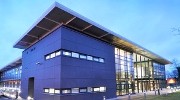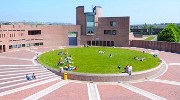NIMBUS

Embedded electronic systems already unobtrusively regulate many aspects of our living and working lives from home heating to keeping us safe while driving and to controlling of complex industrial processes. NIMBUS will also underpin the internet of the future – the Internet of Things – where not only computers are connected by the internet but also the everyday objects that surround us in our daily lives. Even we ourselves may be parts of such networks through the use of embedded systems for monitoring our personal health for example. Monitoring of large scale phenomena such as energy consumption, pollution, weather and global warming is also possible with NIMBUS. The EU, OECD and the Irish government have all identified the Internet of Things as a key technology for future industrial and social development as they recognise that, just as the current Internet has changed our lives beyond recognition in little more than 20 years, the Internet of Things will bring about changes that we are now only beginning to imagine and will create major opportunities for innovation, enterprise and employment.
NIMBUS follows an integrated model of research, teaching and knowledge transfer. As NIMBUS research is inherently multidisciplinary, the cluster has research groups in the areas of Smart Systems Integration, Adaptive Wireless Systems and Augmented Materials with a total of 45 researchers. The cluster has internal research links with the Department of Mechanical and Manufacturing Engineering and Department of Computing and strong external collaborative research links with Tyndall National Institute, UCC, the Environmental Research Institute, TCD and UCD whose research complements the cluster’s activities. This gives a unique capability for whole-systems NES research which is critical in bridging the gap between fundamental research and real NES applications. Recognising the imperative that the cluster’s research should lead to economic benefits for
NIMBUS is funded through the HEA PRTLI programme.
Planning our Future: 9 Irish Companies attend Industry Open Day event in TEC, Nimbus Centre
 On the 21st May 2010, Technologies for Embedded Computing (TEC) hosted its first Industry Open Day. Nine Irish companies attended and represented a cross-section of TEC clients, ranging from small start-ups and indigenous SME’s through to multinational companies. Several Enterprise Ireland staff also attended in addition to the CIT Technology Transfer Office.
On the 21st May 2010, Technologies for Embedded Computing (TEC) hosted its first Industry Open Day. Nine Irish companies attended and represented a cross-section of TEC clients, ranging from small start-ups and indigenous SME’s through to multinational companies. Several Enterprise Ireland staff also attended in addition to the CIT Technology Transfer Office.
TEC, based in the Nimbus Centre, is funded by Enterprise Ireland as part of the ARE (Applied Research Enhancement) programme. TEC is the primary industry interface of the Nimbus Centre. The Centre’s main objective is to create a one-stop-facility for Industry R&D support in the region. This is being achieved by communicating state-of-the-art in research to industry, creating partnership activities, engaging researchers in industry relevant initiatives and providing effective prototyping facilities. The main areas of interest include wireless systems, wireless sensor networks, miniaturised hardware, software development and intelligent user interfaces.
The Industry Open day focused on developing an industry relevant applied research strategy for the TEC Centre over the period 2011-2014. Companies were also invited to provide feedback on the operational performance of TEC, the strategic focus of TEC, the extent of industrial collaborations and its impact on industry and emerging market opportunities for companies. The Open Day also featured an extensive poster session and demonstrations of active research projects underway in the Centre.
The Open day was viewed very positively by all participants as a means of facilitating an industry-led strategy for TEC, offering a deeper understanding of the capabilities of TEC and promoting the continuing interaction between industry and applied research teams.






